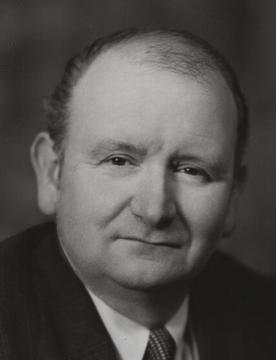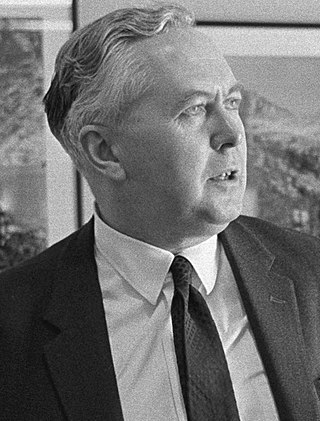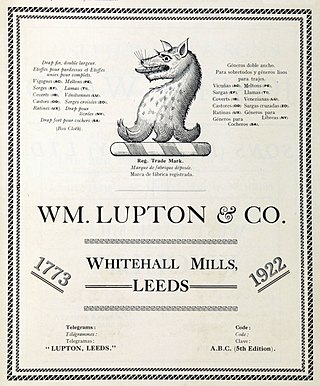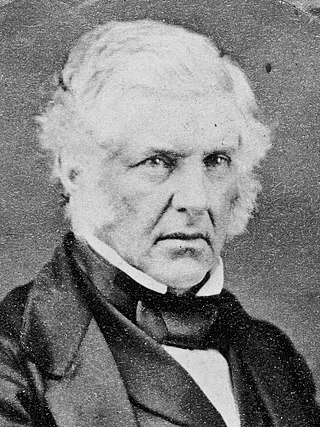
Temple Newsam is a Tudor-Jacobean house in Leeds, West Yorkshire, England, with grounds landscaped by Capability Brown.

The Right Honourable is an honorific style traditionally applied to certain persons and collective bodies in the United Kingdom, the former British Empire and the Commonwealth of Nations. The term is predominantly used today as a style associated with the holding of certain senior public offices in the United Kingdom, Canada, New Zealand, and, to a lesser extent, Australia.
Charles, Charlie, Charley, or Chuck Wilson may refer to:

Baron Nunburnholme, of the City of Kingston-upon-Hull, is a title in the Peerage of the United Kingdom. It was created in 1906 for the former Liberal Member of Parliament for Hull and Hull West, Charles Wilson. His son, the second Baron, also represented Hull West in Parliament as a Liberal and served as Lord Lieutenant of the East Riding of Yorkshire between 1908 and 1924. The title descended from father to son until the death of the second Baron's grandson, the fourth Baron, in 1999. The late Baron was succeeded by his younger brother, the fifth Baron. As of 2014 the title is held by the latter's son, the sixth Baron, who succeeded in 2000.

Roundhay Park in Leeds, West Yorkshire, England, is one of the biggest city parks in Europe. It covers more than 700 acres (2.8 km2) of parkland, lakes, woodland and gardens which are owned by Leeds City Council. The park is one of the most popular attractions in Leeds; nearly a million people visit each year. It is situated on the north-east edge of the city, bordered by the suburb of Roundhay to the west, Oakwood to the south and the A6120 outer ring road to the north.
Donald Kaberry, Baron Kaberry of Adel, MC, TD, known as Sir Donald Kaberry, 1st Baronet, from 1960 to 1983, was a Conservative Party politician in the United Kingdom. He served as a Member of Parliament (MP) for 33 years and was later a life peer.

Thomas Charles Pannell, Baron Pannell, PC was a British Labour Party politician.
The Farnley Wood Plot was a conspiracy in Yorkshire, England in October 1663. Intended as a major rising to overturn the return to monarchy in 1660, it was undermined by informers, and came to nothing.

The 1970 Prime Minister's Resignation Honours were officially announced in the London Gazette of 7 August 1970 and marked the June 1970 electoral defeat of the Prime Minister, Harold Wilson.
The 3rd New Zealand Parliament was a term of the Parliament of New Zealand. Elections for this term were held between 12 December 1860 and 28 March 1861 in 43 electorates to elect 53 MPs. Two electorates were added to this during this term, Gold Fields District and a new Dunedin electorate created by splitting the existing City of Dunedin into Dunedin and Suburbs North and Dunedin and Suburbs South, increasing the number of MPs to 57. During the term of this Parliament, six Ministries were in power.

The Lupton family in Yorkshire achieved prominence in ecclesiastical and academic circles in England in the Tudor era through the fame of Roger Lupton, provost of Eton College and chaplain to Henry VII and Henry VIII. By the Georgian era, the family was established as merchants and ministers in Leeds. Described in the city's archives as "landed gentry, a political and business dynasty", they had become successful woollen cloth merchants and manufacturers who flourished during the Industrial Revolution and traded throughout northern Europe, the Americas and Australia.
Arthur Henry Aylmer Morton was a British clergyman, schoolteacher and Conservative Party politician.
The New Year Honours were appointments by King George V to various orders and honours to reward and highlight good works by citizens of the United Kingdom and British Empire. They were announced on 31 December 1926.

The 1865 Town of New Plymouth by-election was a by-election held in the Town of New Plymouth electorate during the 3rd New Zealand Parliament, on 19 May 1865. The by-election was caused by the resignation of the incumbent, Charles Brown, and was won unopposed by Henry Sewell. Whilst Sewell was not a local resident, he was a member of the government through his appointment to the Legislative Council, the upper house of Parliament. Sewell accepted the invitation to represent the electorate, as him becoming a member of the lower house was seen to strengthen the government.
The New Year Honours 1926 were appointments by King George V to various orders and honours to reward and highlight good works by members of the British Empire. They were published on 29 December 1925.
The 1920 Birthday Honours were appointments by King George V to various orders and honours to reward and highlight good works by citizens of the British Empire. The appointments were made to celebrate the official birthday of The King, and were published in The London Gazette on 4 June 1920.
The 1922 Birthday Honours were appointments by King George V to various orders and honours to reward and highlight good works by citizens of the British Empire. The appointments were made to celebrate the official birthday of The King, and were published in The London Gazette on 2 June 1922.









